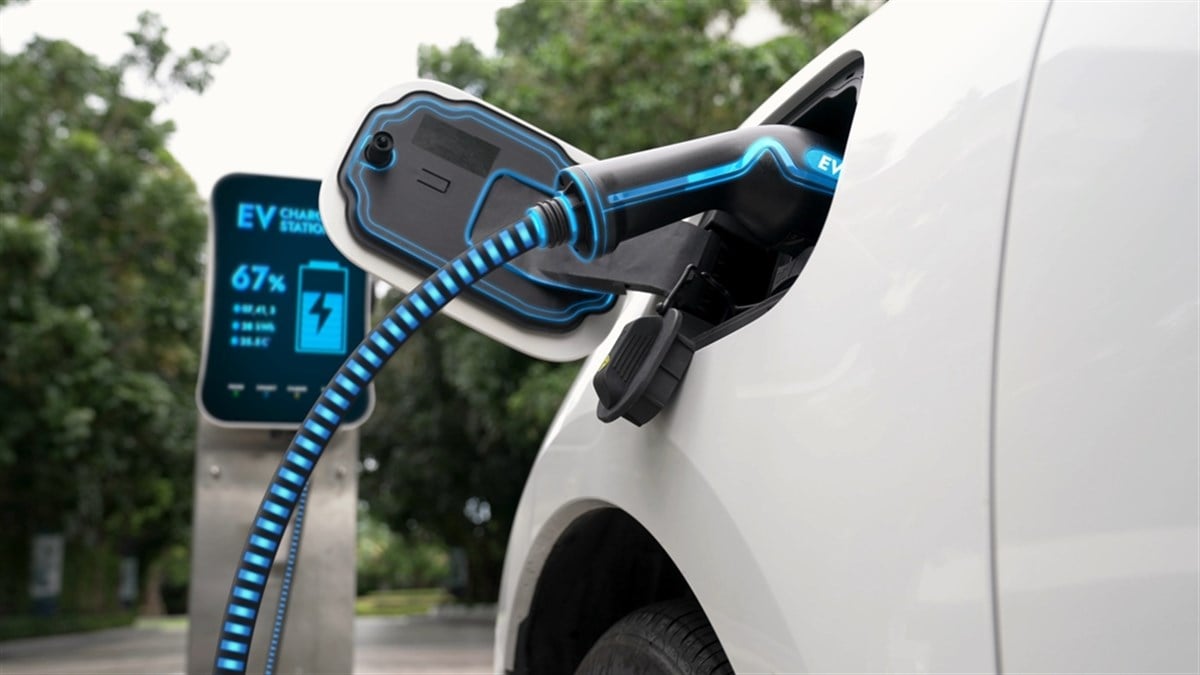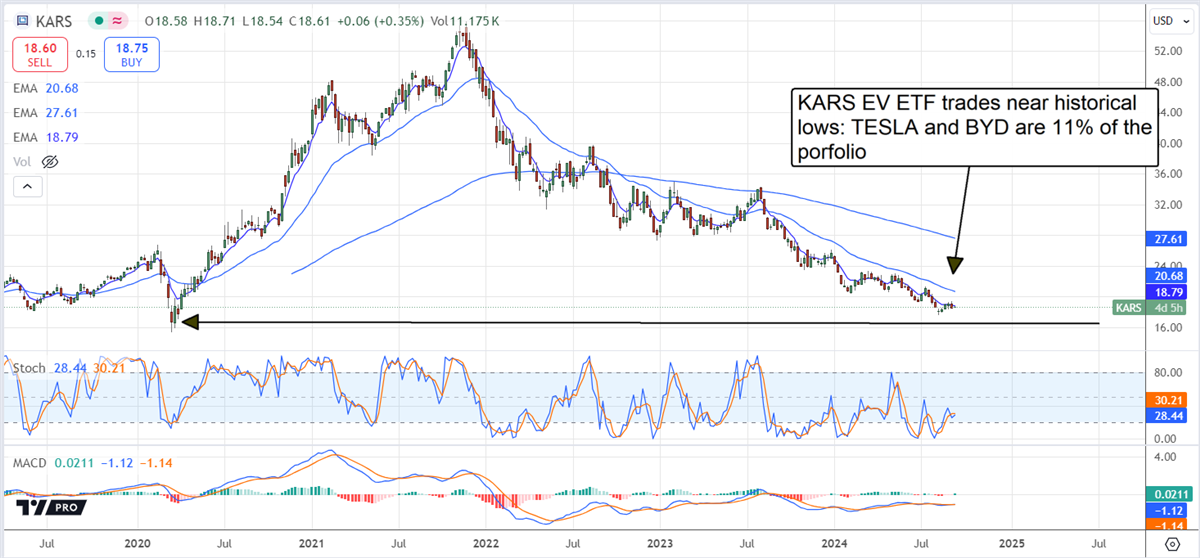
In the words of Ambarella (NASDAQ: NVDA) CEO Fermi Wang, “There is an electrical vehicle OEM shakeout underway.” What is a shakeout? It’s a change in business conditions in which weaker companies fall to the wayside while an industry consolidates and market leaders become established.
Numerous start-ups, including Fisker and Lordstown Motors, have already gone bankrupt, and more are likely to follow suit. Lucid Group (NASDAQ: LCID) and Rivian (NASDAQ: RIVN) are the most prominent, and neither is safe from financial ruin. While both have made progress on costs and shored up their balance sheets, there is still considerable risk that they will need more cash and lean into dilutive actions to get it. As it is, Rivian reported a 6% increase in share count at the end of the last quarter, Lucid a more substantial 20%, not including the impact of its latest cash injection from Saudi Arabia. Both stocks are range-bound near historical lows with no signs of improvement.
Strong Headwinds for EV OEM Startups
While EV sales are growing, growth acceleration has peaked and is now slowing. Slowing is expected to continue until another breakthrough in technology occurs. That may come over the next year or two, but it is a crapshoot for investors and their money because profits are still far off for most companies.
Tesla (NASDAQ: TSLA) at least makes money. However, conditions in 2024, including competition, price cuts, and the demand outlook, have caused Tesla EV production to fall and is not expected to rebound soon. Among the largest threats is the BYD (OTCMKTS: BYDDF) Seagull launched in China. It sells for about $13,000 and threatens U.S. manufacturers of all varieties. Today, affordability is among the biggest hurdles for EV market growth, and BYD has cracked the code.
The hope for Tesla is that it can launch a low-priced model to compete in China and introduce a similarly cheap model in the U.S. while it works on its AI technology. Tesla's AI technology, including autonomous driving, will reinvigorate its market, but there is no indication of when it’ll be ready.
EVs Aren’t Going Away; EV Start-Ups Might Be
A critical detail for investors is that the EV market is not a stand-alone industry outside and exclusive of auto sales. EV is an automotive industry evolution, suggesting the biggest players will come out on top. They can’t afford not to. The play for them is to shift production from ICE to EV as demand dictates; all they need is the right car and demand.
Automobile sales will be weak globally in 2024, and although they’ve scaled back their EV plans, Ford's (NYSE: F) and General Motors (NYSE: GM) (among other major automobile OEMs) plans match consumer demand. They can adjust to the cycle, sustaining positive cash flow and healthy margins, and bide their time until the next upswing in auto and EV sales. That may happen in 2025 as the FOMC lowers interest rates. Not many EV OEM start-ups can boast the same claim.

Major OEMs Will Win The EV War
Volkswagen (OTCMKTS: VWAGY) highlighted the need among major OEMs for and ability to buy EV technology when it committed capital to Rivian. The company has committed up to $5 billion in a venture with Rivian to advance EV technology that may lead to vehicles for both. The interesting detail is that Volkswagen needs the software as much as Rivian needs the cash. Its decision to form the venture was based on budget overruns and delays that pushed back the launch of critical EV models by at least two years.
Among the takeaways is that Rivian has some much-needed capital now, but more is needed to ensure it can cross the finish line, and Volkswagen has a claim to the technology. No matter what happens, Volkswagen wins so long as the venture bears fruit. If it doesn’t, the $5 billion is only about 1.4% of annual revenue and a small sting to bear while Rivian may go bankrupt.
EV Technology and Component Manufacturers Win, No Matter What
As sluggish as the outlook for EVs and individual EV manufacturers is, the EV market continues to grow at a high double-digit pace, about 20% in 2024. The demand for parts often overwhelms supply, as seen in Rivian’s temporarily curtailing production of Amazon (NASDAQ: AMZN) vans. The point is that EV demand and advancing technology drive business for components and technology companies like Ambarella, regardless of who makes the cars.
Ambarella reported increasing demand in its automotive segment in Q2, centered on its newest products, which include the CV5 and CV7 lines of edge-AI computer vision SOCs and the software to support them. The company expects double-digit sequential growth in its automotive segment in Q3 and accelerated growth systemwide. Analysts forecast another acceleration in 2026 and are likely underestimating the company’s strengths.




